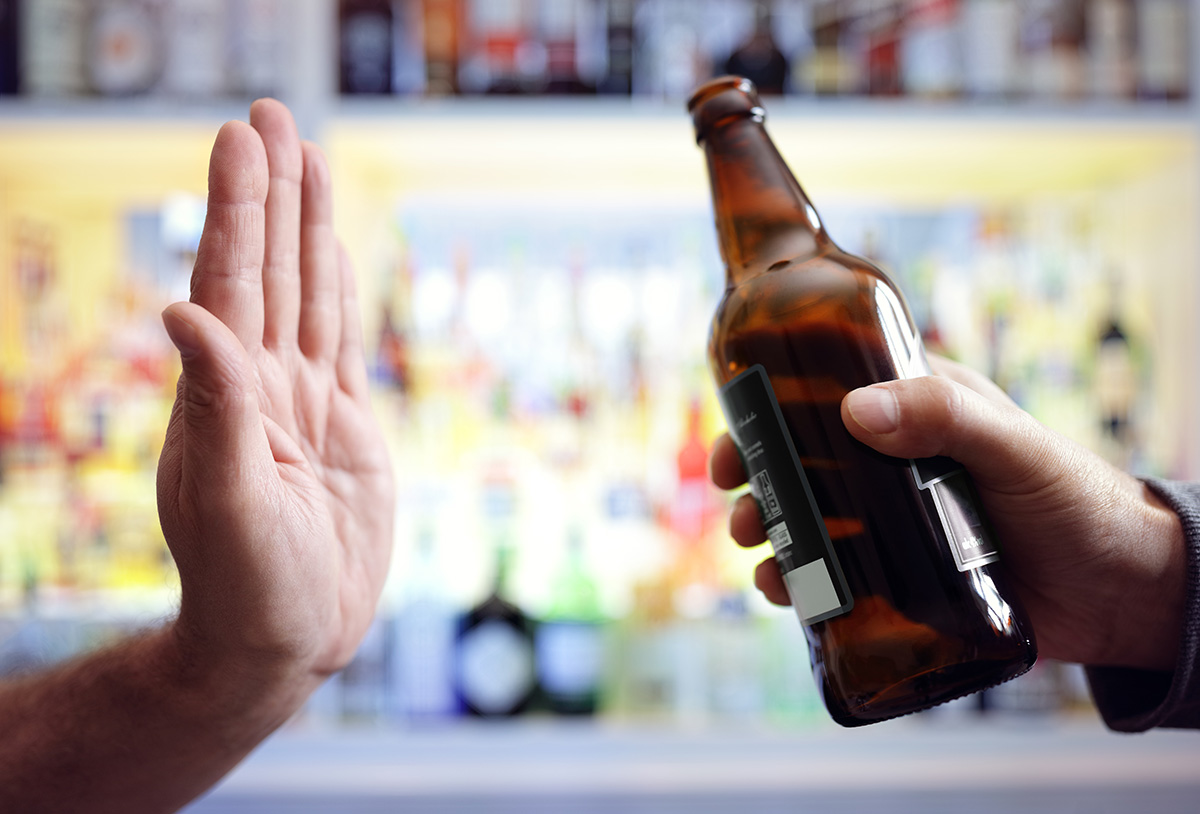

By: Lakeview Health
You’ve been worried. You know that your friend is struggling. Maybe he’s the person at the bar who keeps drinking long after everyone else has stopped. Perhaps she’s the one calling you in the middle of the night rambling, drunk and emotional. Perhaps you’ve tried to say something in the past, yet you felt uncomfortable and insecure. You weren’t sure if you were saying or doing the right thing. Perhaps you’ve never intervened because you aren’t sure how. Either way, you’re feeling scared. Helping an alcoholic friend isn’t easy. There isn’t a perfect answer for supporting a person who’s actively struggling. However, there are a few strategies to consider when reaching out to someone you love.
Understand How Alcoholism Works
Alcoholism isn’t a choice, it’s a disease. Your friend doesn’t want to be dependent on alcohol. People often feel shame, humiliation, and frustration over their condition. While social drinking may be common and accepted, alcoholism is largely stigmatized. Alcoholism can cause significant structural damage to the brain. The more a person drinks, the more his or her tolerance develops.1 That means people require more alcohol to achieve the desired effects of intoxication. This increased tolerance is often what leads to alcoholic behaviors related to secretive drinking, day drinking, and dangerous benders. Of course, distinguishing tolerance can be tricky because everyone metabolizes alcohol2 differently. One’s age, sex, height and weight can all affect alcohol metabolization. However, classic signs of dependence to look out for include:
- Drinking despite wanting to stop or cut back
- Drinking in physically hazardous or risky situations (before driving, at work)
- Weakened performance in school or work
- Interpersonal problems with friends or family
- An increased amount of time spent isolating
- Drinking despite medical or legal problems
When a person dependent on alcohol stops drinking abruptly, he or she starts experiencing withdrawal symptoms. These symptoms can range from slight discomfort to life-threatening consequences. Common withdrawal symptoms3 include:
- Restlessness
- Anxiety and depression
- Incoherent thinking and behavior
- Restlessness and shakiness
- Headache
- Nausea and vomiting
- Sweating and clammy skin
- Tremors (often known as the ‘shakes’)
In severe cases, alcohol withdrawal can cause delirium tremens or DTs.4 Delirium tremens may include severe changes in mental functioning, hallucinations and psychosis, and body tremors. They can also include seizures, which can be fatal.
Addressing Your Concerns
If you choose to speak with your friend about their drinking, it’s important to consider where and how you would like to address this matter with them. Using the wrong tone or selecting a triggering location could make this emotional conversation more difficult and less likely to be successful. Here are a few things to keep in mind:
Lead With (Firm) Love
You love your friend, and it’s hard to see the people you love struggling. Remember that during this time, friends need support and compassion. Judgment, criticism, or ridicule will only push people away. If you take a harsh approach, you risk shutting your friend out.
Understand the Disease
It may be beneficial for you to gain a better understanding of what your friend is going through. Consider attending a local 12 step fellowship meeting or support group yourself to gain a deeper understanding of the disease. There are open meetings which allow the public to sit in, whether you have a desire to stop drinking or not. After the meeting, pull one of the group’s leaders aside and ask for advice on your situation. The group of people in that fellowship are there to help and have more than likely been through what you are going through. This is an incredibly easy and extremely useful resource to help you address the drinking problem with your friend or loved one.
Talk At A Neutral Time (In A Neutral Space)
Want to know the worst time to talk to alcoholics? When they’re about to drink, actively drinking, or already drunk. Unfortunately, that’s precisely when most loved ones try to intervene. Instead, it’s better to talk during a time completely removed from alcohol. Don’t do it at a bar or party. Don’t do it when they’re hungover. Finally, don’t do it immediately after a serious event or consequence related to drinking (like losing a job or having an intense, marital fight).
Use I-Statements
When you speak with your friend, it’s essential that you make the discussion about you. After all, these are your feelings, thoughts, and experiences. Statements like you’re always drunk, or you keep saying you’re going to stop, but you don’t come across as condescending and accusatory. You’re essentially inviting your friend to react with defensiveness, minimization, or rationalization. Instead, it’s best to keep it neutral and focused on your perceptions. This includes I-statements like, I feel sad when we spend time together, and you’re drinking, or I become worried when I heard that you drove home after leaving the bars last night. These statements don’t mean that your friend still won’t become defensive. However, it’s much harder to argue with your feelings than with your perception of theirs. I-statements may feel somewhat strange if you’ve never used them before. You can practice beforehand to feel more comfortable and confident.
Consider An Intervention
There’s a good chance that you aren’t the only one worried about your friend’s well-being. Have all your friends noticed this pattern? Has your friend’s parent or significant other expressed concern to you? Interventions can be powerful in highlighting the intense feelings each person has about the individual’s alcoholism. They give everyone a chance to voice their opinions. Moreover, they provide an entryway for treatment. If you intend to venture down this route, it’s often best to consult with a professional interventionist. Interventionists have ample experience in coaching families and loved ones to set their boundaries. They also have direct access to resources and treatment facilities for immediate care. If you are planning an intervention for a friend or a loved one and need assistance, call Lakeview Health at (866) 265-2778.
Anticipate The Anger
It’s very normal for people to become hostile and angry when being confronted with their behavior. Your friend may deny a drinking problem. He may tell you to mind your own business and leave him alone. These reactions do not mean your approaches have ‘failed.’ It merely means your friend may not be ready to address the drinking issue at this time. That said, you may have planted an important seed that may pay off dividends later on.
Offer To Help Them Find Treatment
Has your friend decided that he or she wants to recover from alcoholism? That first decision is a large one to make! However, your friend may need some help in how to go about finding the best care. Consider how you can be supportive during this time. Can you sit down with them and look at different programs? Can you provide them with some basic resources about detox or residential care? Remember that deciding to go to treatment is one thing. Actually committing and following through with the process is entirely different. During this time, you can act as a cheerleader. Remind your friend that he or she can do this!
Support Their Recovery
You might be surprised to discover how many friends and family inadvertently sabotage sobriety. Whether it’s encouraging them to just have one drink or asking if they really have to go that meeting, even slight, offhand remarks can have devastating consequences. Of course, you don’t have to worry about saying or doing the right thing all the time. You’re not perfect! Instead, you should focus on how you can be a positive asset in recovery. Think about all the sober fun you can have with your friend. If you used to drink together, what about going to the gym, trying a new restaurant, or hosting a game night? What about volunteering together or just catching an afternoon movie? You can also provide support by offering to attend a meeting or asking about the tools and resources learned in treatment. You don’t have to push the support. In early recovery, people often need some space to reflect on their own struggles, triggers, and behaviors. They may naturally withdraw from friends and family to focus on themselves. If this happens, do your best to avoid taking this personally. If you’re not in recovery, you don’t necessarily have to quit drinking yourself. However, it’s respectful to abstain from alcohol use around your friend, at least in the beginning stages. If he or she insists on not caring, be mindful of your intentions should you choose to drink.
Maintain Healthy Boundaries
Relapse can be a part of recovery. Alcoholism is a chronic condition. It requires ongoing effort and maintenance. With that in mind, your friend may encounter some obstacles along the journey. Anticipate these obstacles and plan for them. While relapse can happen, it’s essential that you safeguard yourself with clear and healthy boundaries. Boundaries are not meant to be punishment. They are intended to protect your integrity and self-esteem. Without boundaries, you risk people taking advantage of you. This cycle often leads to resentment and a weakened sense of self. Healthy boundaries you can set with friends include:
- Refusing to spend time with them if they are actively intoxicated
- Refusing to provide financial support
- Calling the police if they are driving under the influence
- Calling law enforcement if they are intoxicated while taking care of minor children
- Refusing to maintain secrets for them (i.e. being unfaithful while intoxicated)
Remember that boundaries are fluid. That means you are allowed to set them at any time. You are also entitled to modify them as needed. Good friends respect your boundaries. If your friend cannot respect them, you may need to set both your physical and emotional distance.
Final Thoughts
Helping an alcoholic friend often requires patience and compassion. It is not your job to cure them of their problem. However, you can make a significant difference in providing support and reassurance during this difficult time. We understand that addiction is not a single-person problem, and we are here to provide support for everyone inflicted. Download our free e-book on understanding addiction treatment today or call us at (866) 265-2778 for immediate help.





